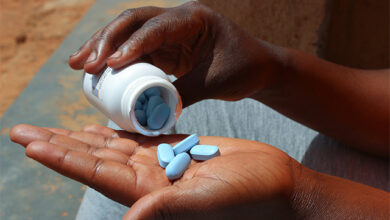The leadership of the Forum for People Living with HIV/AIDS in Zombo District has raised alarm over reports of individuals living with HIV resorting to excessive alcohol consumption following misinformation about funding cuts to the AIDS Commission by the U.S. government.
In January 2025, the Trump administration announced a suspension of trillions of dollars in federal aid under the United States Agency for International Development (USAID), sparking global concerns about the ongoing fight against the HIV pandemic.
Despite this abrupt decision, President Yoweri Museveni reassured Ugandans last month that the country would remain unaffected by the withdrawal of U.S. aid, downplaying continental worries.
However, the Zombo Forum for People Living with HIV/AIDS reports that this news has been misinterpreted by many of its over 4000 members.
Collins canudwoga, the chairperson of Zombo forum for people living with HIV/AIDS said the concerning reports about heavy alcohol consumption without adherence to medication is sky-high in Padea town council and Warr Sub-County.
The trend of heavy drinking is particularly prevalent in Padea and Warr Town Councils, where individuals have been quoted saying, “We are now going to die because the drugs are no longer available.”
Collins Canudwoga, Chairperson of the Forum, confirmed these reports in an interview with this publication on Monday, April 7, 2025. Expressing deep concern, he emphasized the need for public education by peer educators and health experts to counter misinformation.
“We have sufficient stocks of antiretroviral (ARV) medications to meet current needs,” Canudwoga stated, urging members to refrain from believing unverified claims.
“We are receiving reports from our peer educators across the district that many individuals are living in fear and turning to alcohol out of frustration, believing they will die due to the U.S. government’s funding cuts,” he told this publication.
“This stems from misinformation, and I want to assure my people that we have enough ARVs in stock.”
According to the World Health Organization (WHO), harmful alcohol use accounts for 6.9% of the global disease burden among men and 2.0% among women. It is a leading risk factor for premature mortality and disability among individuals aged 20–39, contributing to 13% of deaths in this age group.
Vulnerable and disadvantaged populations, including those living with HIV, face elevated rates of alcohol-related mortality and hospitalization.
To mitigate these risks in Zombo, Canudwoga urged individuals to avoid excessive drinking, adhere to their ARV regimens, monitor their health status regularly, and practice safe sex by consistently using condoms.
Health experts note that for people living with HIV, alcohol misuse can reduce adherence to antiretroviral therapy (ART), accelerate disease progression, and increase susceptibility to opportunistic infections and other comorbidities.
Zombo’s Assistant Resident District Commissioner, Bruno Manano, called for responsible use of media and communication channels. He encouraged local leaders to provide regular updates through accessible platforms to dispel misinformation, which he described as increasingly pervasive.
Experts highlight several ways alcohol consumption adversely affects individuals living with HIV:
Reduced Adherence to Antiretroviral Therapy (ART):
Excessive drinking disrupts consistent ART use, critical for viral suppression and preventing transmission.
Accelerated HIV Disease Progression: Research indicates heavy alcohol use may hasten HIV progression, weakening immune responses.
Increased Risk of Comorbidities: Alcohol exacerbates liver disease, cardiovascular issues, and susceptibility to infections in HIV-positive individuals.
Risky Sexual Behaviors: Alcohol misuse is associated with unprotected sex, elevating risks of HIV transmission and co-infections with other sexually transmitted infections (STIs).
Non-Disclosure of HIV Status:
Drinking may reduce the likelihood of disclosing HIV status to partners, further amplifying transmission risks.
Alcohol, a psychoactive substance with addictive properties, is deeply embedded in social settings worldwide. Its routine use often obscures its significant health and social toll.
The WHO estimates that alcohol contributes to 2.6 million deaths annually and accounts for 4.7% of the global disease burden.
Uganda continues to face a substantial HIV burden, with approximately 1.5 million people living with the virus.
Despite advances in treatment access, new infections and AIDS-related deaths remain high. The Uganda AIDS Commission has developed a sustainability roadmap to combat HIV/AIDS, but with only five years until the 2030 global target to end AIDS as a public health threat, its role remains critical.
President Museveni has frequently cautioned Ugandans against “reckless living” in his annual World AIDS Day addresses.
Globally, AIDS-related deaths have declined by 69% since their peak in 2004 and by 51% since 2010. In 2023, approximately 630,000 people (range: 500,000–820,000) died from AIDS-related illnesses, compared to 2.1 million (1.6 million–2.7 million) in 2004 and 1.3 million (1 million–1.7 million) in 2010.
